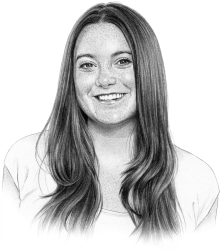The Dual Challenge of Disability: Skepticism and False Claims

Atticus offers free, high-quality disability advice for Americans who can't work. Our team of Stanford and Harvard-trained lawyers has a combined 15+ years of legal experience and has helped over 50,000 Americans apply for disability benefits.
Disabled individuals often face an uphill battle in society, with their conditions and needs frequently met with skepticism and disbelief. To better understand this troubling issue, we surveyed 700 disabled and 300 non-disabled Americans. The findings shed light on the pervasive discrimination faced by those with disabilities, as well as alarming instances of false disability claims, particularly in recreational settings like theme parks. This report explores key insights from our research and what it means for promoting genuine accessibility and inclusion.
Key takeaways
Nearly 3 in 4 disabled Americans have been wrongfully accused of not having a disability.
Over 70% of disabled Americans have experienced skepticism about their disability at a theme park.
Just over 5% of non-disabled Americans have falsely claimed to have a disability to gain an advantage, such as skipping a line at a theme park.
3 in 5 non-disabled Americans think people who falsely claim a disability to gain advantages at a theme park should receive lifetime bans.
Disability skepticism

Nearly 3 in 4 disabled Americans have been wrongfully accused of not having a disability. Here’s how frequently they’ve had to deal with disability skepticism and accusations this year:
Multiple times per day (7%)
About once per day (6%)
A few times per week (21%)
A few times per month (28%)
A few times this year (29%)
Once this year or less (10%)
Disabled Americans have experienced the most skepticism about their disability.
At theme parks and recreational facilities (72%)
At work or when applying for a job (51%)
At airports and train stations (48%)
Over 40% of disabled Americans feel discouraged from visiting a theme park. Among those who visit these parks, 3 in 5 find it stressful due to the numerous obstacles they encounter in line and while navigating the park.
Disability claim misuse

Just over 5% of non-disabled Americans have falsely claimed to have a disability to gain an advantage, such as skipping a line at a theme park.
The most common falsely claimed disabilities are mobility impairment (53%), mental health conditions (24%), and sensory impairment (18%).
3 in 5 non-disabled Americans (60%) think people who falsely claim a disability to gain advantages at a theme park should receive lifetime bans.
A call to action
Our study reveals the persistent challenges faced by people with disabilities, from widespread skepticism to the misuse of disability accommodations. The findings highlight deep-seated societal issues that demand greater empathy, education and tangible progress toward true accessibility and inclusion. Ultimately, upholding the rights and dignity of the disability community must be a top priority as we work to build a more equitable world.
Methodology
We surveyed 700 disabled and 300 non-disabled Americans to explore societal perceptions and experiences concerning disability claims and their authenticity. The average age of disabled respondents was 43, comprising 36% males, 57% females, and 7% non-binary individuals. The average age of non-disabled respondents was 38 and comprised 50% males and 50% females.
About Atticus
Atticus makes finding legal help easy. We’re the first place people in crises can turn to claim the aid they deserve.
Fair use statement
You’re welcome to share any of these findings for noncommercial purposes, but please provide a link back to this page when doing so.

Sarah Aitchison
Attorney
For Clients
Fields of Law
For Lawyers
At the bottom of many websites, you'll find a small disclaimer: "We are not a law firm and are not qualified to give legal advice." If you see this, run the other way. These people can't help you: they're prohibited by law from giving meaningful advice, recommending specific lawyers, or even telling you whether you need a lawyer at all.
There’s no disclaimer here: Atticus is a law firm, and we are qualified to give legal advice. We can answer your most pressing questions, make clear recommendations, and search far and wide to find the right lawyer for you.
Two important things to note: If we give you legal advice, it will be through a lawyer on our staff communicating with you directly. (Don't make important decisions about your case based solely on this or any other website.) And if we take you on as a client, it will be through a document you sign. (No attorney-client relationship arises from using this site or calling us.)
- © 2026 Atticus Law, P.C.
Terms | Privacy | California Privacy | CHD Policy | Disclaimer | This website is lawyer advertising.